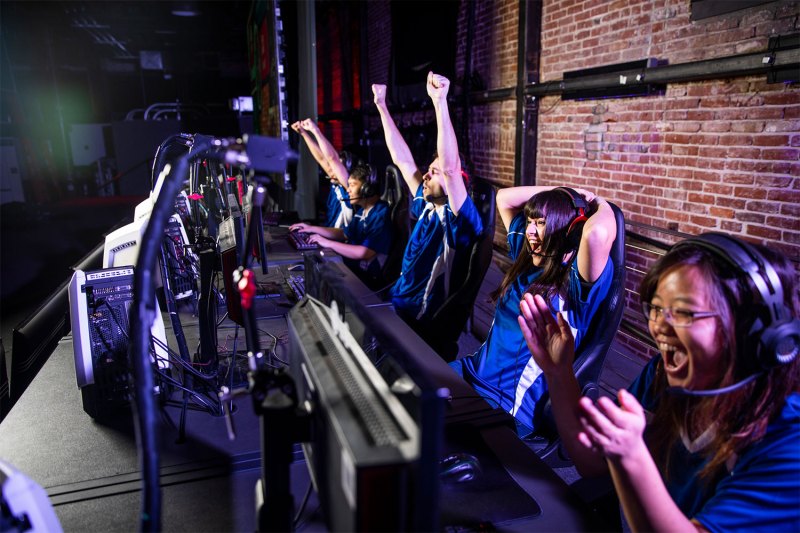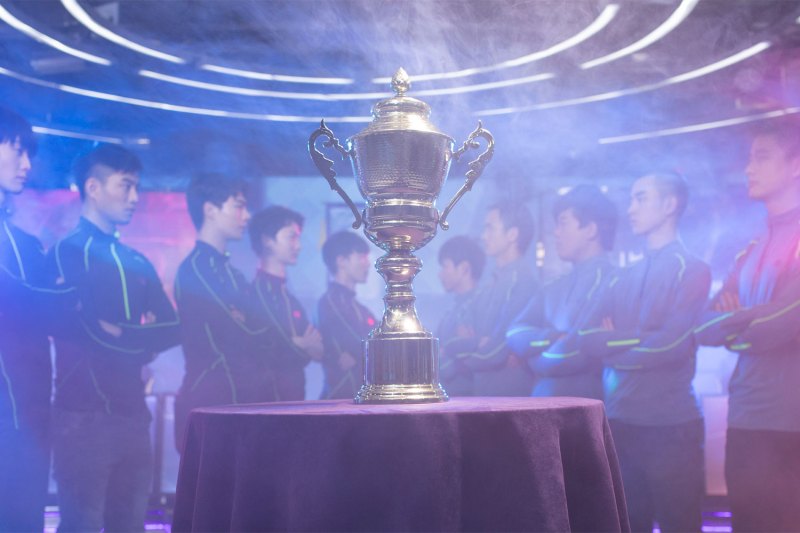As the physical sporting world remains eerily quiet, the virtual one is stretching its legs and coming to life.
For the record, esports have been a big deal for quite a while. It’s a giant industry estimated to be worth somewhere in the ballpark of $1.8 billion by 2022. It’s attracting the largest audience on the planet, already over 600 million people. Forbes reports that esport pro athletes have been growing more than 40% annually every year since 1998. The LA Times says eight million people log on every day to take part. And yet, for some of us, it still feels somewhat foreign, an underground culture even.

Well, with the public health crisis in full swing, we’ve already seen athletes and celebrities hunkered in their living rooms with controllers in hand, engaging in video games like NBA 2K20 or FIFA 20. Those are video games mostly played recreationally, although when the stakes rise and pros and money get involved, they essentially become esports. It’s a galaxy comprised of lucrative tournaments and headset-wearing teams partaking in things like Dota 2, Counter-Strike: Global Offensive, and Fortnite.
Other popular esports games include League of Legends, Overwatch, and Hearthstone. The most played right now is Dota 2, with prize money well into the nine-figure mark and attracting thousands of participants and related tournaments. Esports were rising meteorically before the global lockdown occurred, to be fair. With quarantines all over the world, the industry is looking poised to finally cement its place in the foreground of pop culture.
Esports, of course, aren’t immune to the crisis (nothing is). Many of the largest tournaments bank on large gatherings of people. Events like the Pokemon Championship Series — the North American event planned for June in Ohio and the World Championship set for London in August — have been canceled. Others have been postponed. Most of us have at least caught wind of these events, fit with packed theaters or stadiums and teams of headset-adorned players, many of whom train vehemently. Just like traditional sports, esports has its share of major sponsors, endorsements, stars, rivalries, and dynasties.

Its main advantage right now is its ability to go remote. The internet is proving to be a refuge for this realm and many major tournaments have embraced an online-only format. Countless people are watching gamers play live through outlets like Twitch. Moreover, folks hungry for sports are crossing over because it’s basically the only option left for real-time competition. One can only watch so many old YouTube videos of past NBA championships before they thirst for some live competition.
Team Liquid embodies the rise of esports over the last couple of decades. Founded in 2000, the Netherlands-based outfit is widely regarded as the most successful esports franchise ever. It has earned well over $30 million, boasts teams that play in a whole family of games, and has attracted partners from Honda to Monster Energy. The collective is like the Real Madrid of esports, boasting some of the best players and a large and full trophy cabinet.
Time will tell just what our current cultural hiatus does to esports. For now, as basketballs remain deflated and stadiums empty, the internet is filling up with gamers. And with major leagues trying to access things with a longterm perspective, some crossover has already taken place. NASCAR has embraced an esports adaptation of itself and many other organizations are looking to emulate the move. Will the NFL follow suit? Major League Baseball?

We can’t help but speculate how various seasons would have ended up. Was King James going to get a title with the Lakers? Were the Astros going to get booed out of every stadium in the country in the wake of the cheating scandal? How might Tom Brady do in Tampa? If sports are delayed through the year, we may be able to rely on esports to fill some of the void. Technology can virtually finish the seasons for us, pretty accurately thanks to scores of stat-based algorithms, all while drawing in viewers online or via television.
Even if you’re a nonbeliever in the exploding realm of esports, you can find a certain element of entertainment in highlight clips online. It’s glorious to hear animated commentators covering live video game battles. Even if you have no idea what’s going on, it’s hard not to appreciate the commitment and battle verbiage. And if you do get a taste for it, you soon realize just how much strategy and preparation is at play. Sure, it’s pixels on the screen and not real people, but the main ingredients of sport are all mostly there.


